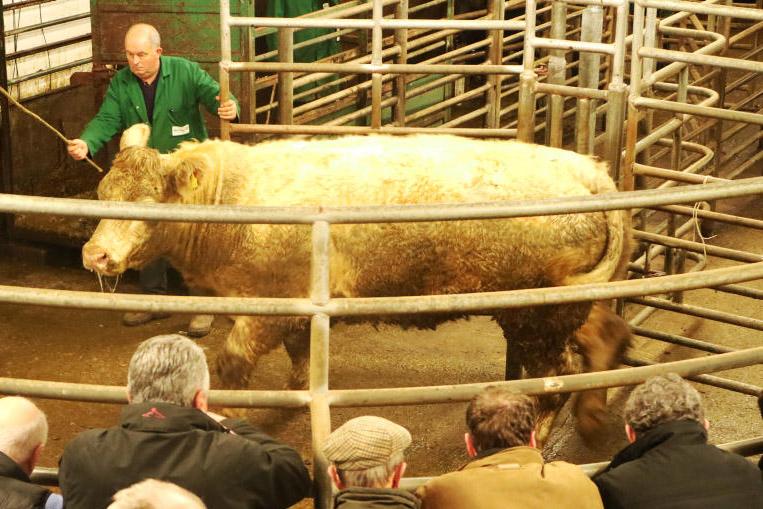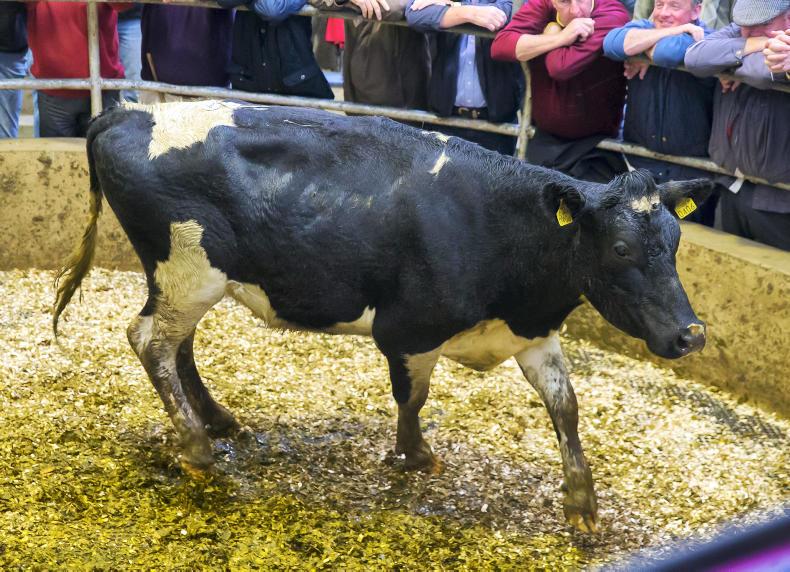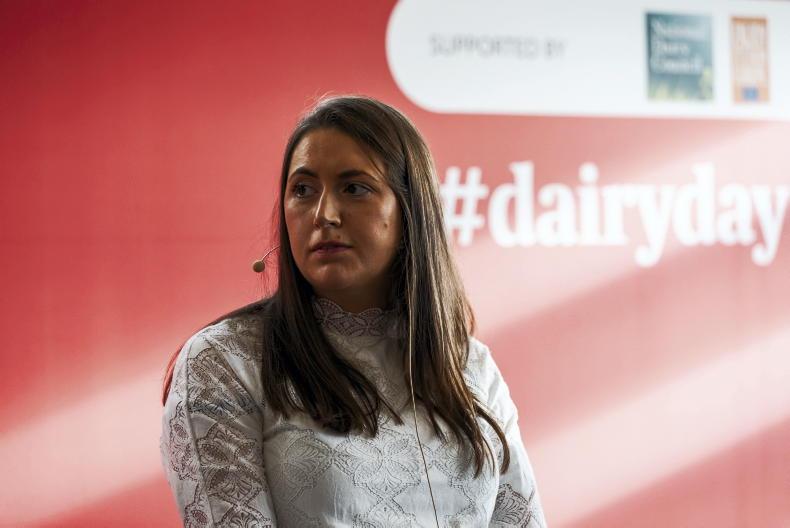Matthew Jackson grew up in Manchester city centre, with no background or links to farming. Despite this, he now owns 400 cows, and he is only 28 years old. What is even more remarkable is that he left school at 15, with no money to his name.
The story starts in childhood. Growing up, family holidays were spent at a campsite on a small dairy, beef and sheep farm in north Wales.
“I absolutely loved going there. I really liked being out in the open, being in the countryside and away from the city and I got on really well with the farmer. I hated school, so much to my parents’ frustration that I left school at 15 to go and work on the farm the campsite was on. Initially, it was only going to be for a few months but I’ve been in north Wales since.”
Matthew lived in a converted outhouse and helped with the animals and whatever else needed to be done. When he turned 16, he bought a 50cc scooter and began doing a round, helping out two local farmers in the area with relief milking, stone-walling and sheep shearing. He reared 50 turkeys over a couple of winters and used the cash to buy a car.
When he turned 17, he went to New Zealand for four months to shear sheep. When he returned, he decided he needed to start saving money, so he looked for a full-time job.
Relief milking
He approached Rhys Williams and David Wynne Finch, who he was doing relief milking for before he went to New Zealand. At the time, Rhys and David were farming in partnership, milking 1,200 cows. When Matthew asked Rhys for the job, he said he would hire him, but only on the proviso that he went back to New Zealand to upskill and work on a grass-based dairy farm.
So Matthew hopped back on a plane and spent six months working on a farm near Invercargill on the South Island. This was the same farm Rhys worked on in New Zealand years previously.
When he returned from New Zealand in 2008, Matthew was 19 years old and he started working as a junior herdsman for Rhys and David on their 300ha farm. In August of his second year working there, he used his savings to buy 20 of the later-born heifer calves from the farm. He put these calves on eight acres that he started renting from a man he met at a learning Welsh night class.
 He wintered the heifer calves on deferred grass and sold them the following spring. With the proceeds from the sale, he bought another 47 calves from the farm and members of his discussion group. Matthew found another 10 acres to rent but this land had only had 15% ryegrass in it. He cut and baled the grass that was on it, sold it for bedding and used this money to fence the fields.
He wintered the heifer calves on deferred grass and sold them the following spring. With the proceeds from the sale, he bought another 47 calves from the farm and members of his discussion group. Matthew found another 10 acres to rent but this land had only had 15% ryegrass in it. He cut and baled the grass that was on it, sold it for bedding and used this money to fence the fields.
These heifers were sold again in spring 2011. At that stage, Matthew had enough cash to buy 82 calves. But to do so, he needed more land and working capital, so he took out a £30,000 loan. His next move was to take on a 50ac tenancy from the local council. He also bought a quad bike and small fertiliser spreader.
That year, Matthew was awarded the Richard John Memorial bursary, which enabled him to go back to New Zealand and Australia for a month on a study tour based on share-farming, contract heifer rearing and cow hire/leasing.
In 2012, he was offered the position of farm manager on the 1,200-cow farm he was working on. He leased out 50 of his in-calf heifers and sold the rest and purchased another 109 heifer calves, which he reared and out-wintered on various parcels of rented land, looking after them before and after work and at weekends.
We decided to convert this to a dairy farm and go share-milking
By 2013, he had 50 cows leased out, 109 bulling heifers and 110 weaned calves. “At that point, I was ready and keen to make the next move. I spoke to David Wynne Finch and we agreed that we would continue to work together. He had a 100ha outfarm that he was using for out-wintering cows and we decided to convert this to a dairy farm and go share-milking.”
Work on the conversion began in September 2013. All of the capital infrastructure work was paid for by David, while Matthew supplied the stock. He sold the 50 leased cows and took out a loan to lift numbers, buying 117 in-calf heifers from Ireland. David was guarantor on this loan. He also bought some lower-budget summer-calving cows and induced them to calve in the spring. Between the purchased animals and his own heifers, he had 365 cows to calve down the first year.
At this stage, his borrowings were at £180,000. Milking began on the new farm in March 2014. Capital investment was minimised. A 24-unit herringbone parlour was built and in the first year all cows were out-wintered. Since then, 280 cubicles have been built and there is a loose shed for about 100 cows.
The farm is set up as a 50:50 share-milking agreement, with all income and costs split equally between Matthew and David. This year, 400 cows were milked. Jess, who is 18, works full-time on the farm with extra help hired in for six weeks of the spring, along with relief milkers throughout the year.
 “It’s a busy spot but we try to keep things as simple as possible. We’re spring calving for 10 weeks and after calving, cows go straight to grass. Contractors do slurry spreading, silage and fertiliser spreading,” Matthew says.
“It’s a busy spot but we try to keep things as simple as possible. We’re spring calving for 10 weeks and after calving, cows go straight to grass. Contractors do slurry spreading, silage and fertiliser spreading,” Matthew says.
With 400 cows and 92 effective hectares, the stocking rate is high at 4.35 cows/ha. The farm is by the coast and the land is top quality. Technical performance is excellent – the cows are on track to produce 1,870kg MS/ha (430kg/cow) from 600kg of meal and empty rate with zero intervention is 10% after 10 weeks of breeding. Total grass growth this year is 15.4t/ha. In 2014, the farm grew 13.5t/ha. With such a high stocking rate, not enough winter feed is produced on-farm, so it is bought in from neighbouring farms. The 50ac council tenancy has been dropped but the other land Matthew was renting is now being leased by the farm. Youngstock are contract-reared. Money from bull calf and cull cow sales goes to rear replacement heifers. Any surplus heifer calves are owned by Matthew. He has been keeping them and gets them contract-reared alongside the farm’s heifers.
I want to run simple, replicable and resilient systems
Total farm income for 2016 will be 18p/l while the farm working expenses will be close to 16.4p/l, including Matthew’s salary. The farm will generate a cash surplus of €35,000 in 2016 and half of this will be Matthew’s.
He is engaged to Mari and they have two young children with a third on the way. “I’m now generating surplus stock and wondering what to do with them. We are setting goals and looking for new opportunities. I want to run simple, replicable and resilient systems and give other young people the same opportunities I got.”
Matthew will be speaking about his experiences at this year’s Positive Farmers Conference on 11 and 12 January, Radisson Blu hotel, Cork.











SHARING OPTIONS